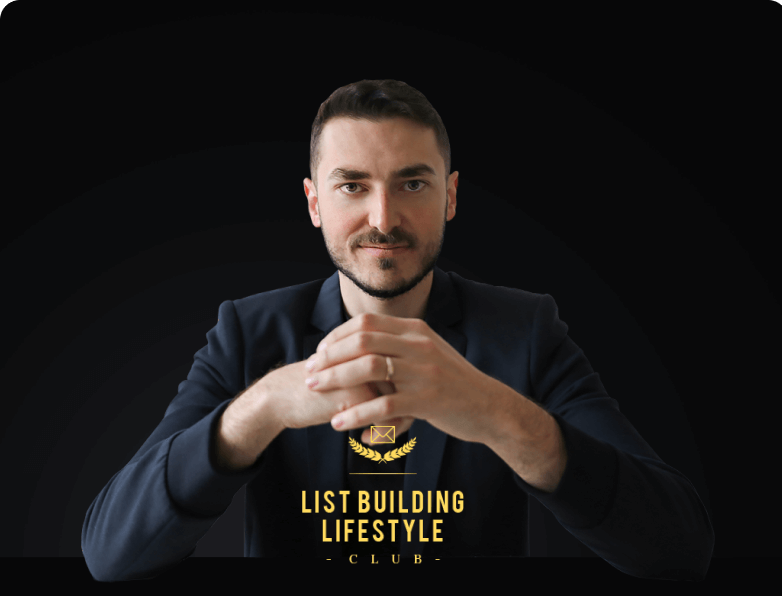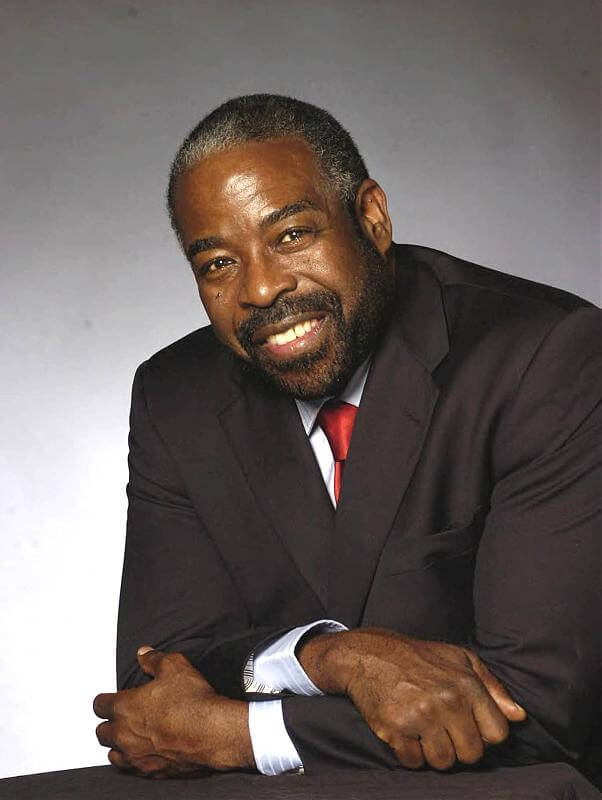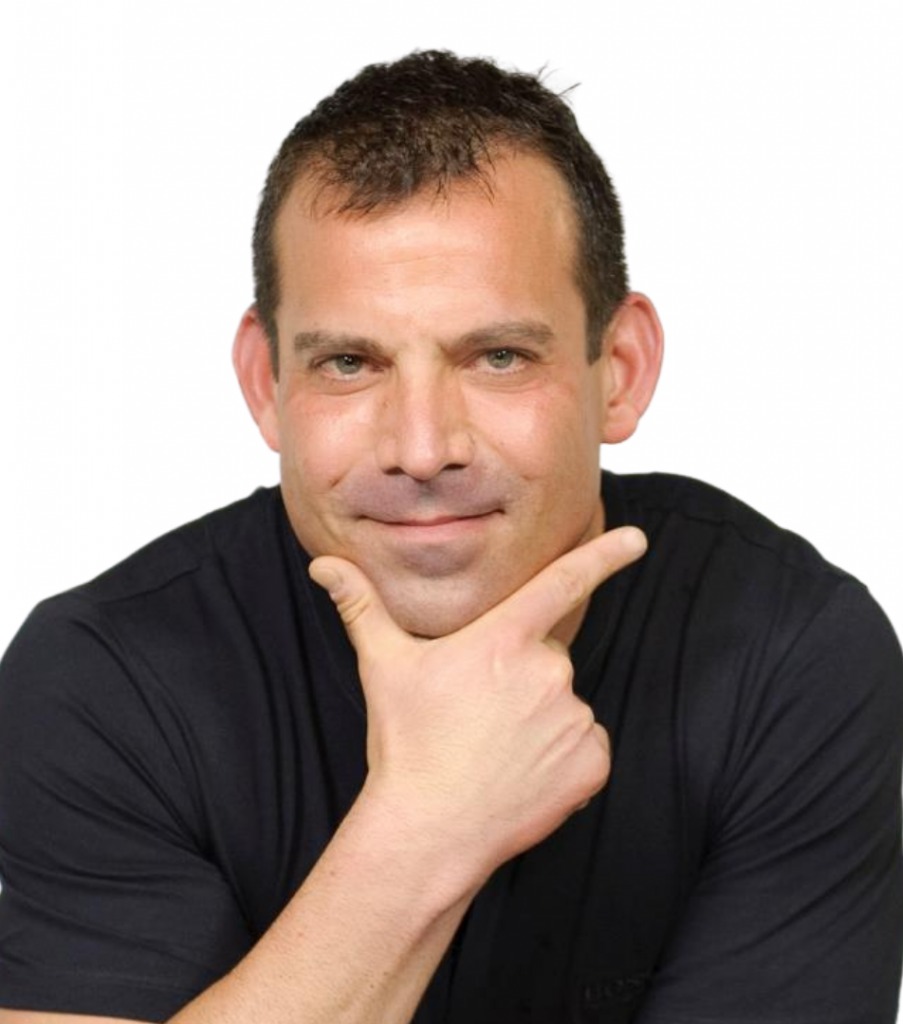Sun Tzu’s “Art of War” is one of the greatest strategic manuscripts ever written. The core principles apply just as well to combat as they do to life, business and relationships. Here’s how to apply Sun Tzu’s wisdom to your online business for lasting success.

Art of Igor Part 3
Igor: Hi, my name is Igor Kheifets and this is the List Building Lifestyle, the only podcast
which delivers cutting edge conversion strategies from the online trenches straight to
your earbuds. Download the transcript of today’s episode and all future episodes at
listbuilidnglifestylesshow.com. I also invite you to grab a free copy of “The Wealthy
List Builder’s Survival Guide” at listbuildinglifestyleshow.com/survival and now
once again it’s time to claim your List Building Lifestyle.
Welcome back to another edition of the list building lifestyle with your host Igor
Kheifets. This is art of Igor part three. This is going to be the final episode in
the series of episodes where I’m going over a Sun Tzu’s The Art of War principles
based on an article written by a nice fellow by the name of Eric Jackson from
Forbes.com, who graciously listed about 30 or so principles for the Art of War.
So, thank you, thank you Mr. Jackson. And Ms. Jackson. Anyway, so the principal
I’m going to be starting with today, all right, it’s something I learned later on
in my career. It’s something that I unconsciously learned and interpreted, but it
was not until about six years into my journey that I recognized how powerful this
principle is and how it actually works 100% of the time.
Now this is the kind of principle that is … it’s just not something you can
argue with. Like some of these principles you can argue with them and you can say,
“Okay, this tactic of fits me, this tactic doesn’t fit me,” and to an extent you
will be right to do that because you know, you’d want to do what feels right to
you. But this principle in particular is something that is true 100% of the time,
in 100% of businesses for 100% of the people. And the principle is very simple.
Opportunities multiply as they are seized. In other words, kind of like with Ben
Settle talks about when he says, “Emails beget emails.” So once you start writing
emails, you get more email ideas to write about. In the same exact way in your
business and in your life, the more opportunities you go and proactively try to
create, the more opportunities you try to seize, the more opportunities those
opportunities will create for you.
And I’ll give you a great example. So since arriving in Canada on December 3rd,
2017, I’ve actually realized that I have no friends here, and I’ve started
proactively creating opportunities to make friends. I started reaching out to all
kinds of business associates. I started asking people I knew since I arrived to
introduce me to other people, then I had some things … Like I spent about a
month working in a virtual office space just to get to meet some local
entrepreneurs. So basically I was proactively reaching out, and engaging people,
and seeking friendships and relationships. And the more I started doing that, the
more opportunities started coming my way automatically without me even trying. So
I would meet one person that would connect me with not a person that will connect
to another person. And before I knew it, one Sunday evening, I had an invite to
three different parties, that I had to literally choose one and declined the other
two because it can be in three different places all at the same time, which is
kind of sucks.
I wish I’d had that skill, but I mean, the reality is that I can’t. So, the more
opportunities I’ve created and seized or for myself, the more opportunities
automatically came my way. In your life, in your business, in your marketing it is
exactly that. It is exactly the same way. Again, I’ll give an example of the
webinar we’ve created, so you may have seen it around, maybe not. It’s a traffic
webinar that I conduct where I educate people about email traffic, where I share
with people this amazing, amazing strategy of getting traffic using solo ads,
which I think is one of the best ways to get leads. One of the best ways to grow
your business, and it turns out a lot of people still don’t understand this.
So, since creating that webinar and running both ads and joint venture traffic to
it, what I noticed is that the more traffic or run into it, the more opportunities
are certainly created. More joint venture partners reaching out to meet, to
conduct a webinar with them for their tribe, and for their audience. I’m all of a
sudden seeing people who I would consider influences reaching out to me themselves
asking for assistance with their traffic generation. I’m seeing people who’ve been
following me around for years but never taken action suddenly jump off the fence
and do something, want to do something with us. All kinds of opportunities kind of
fall in my lap as a result of creating that marketing piece.
So opportunities multiplies, [inaudible 00:05:05] seize this very powerful
principle that works 100% of the time. And anyone who’s successful, anyone who’s
got things going on you’ll see them either consciously or unconsciously … Again,
a lot of these things are unconscious for many top performers. They sort of
internalize these, but he can’t really like verbalize them. But this principle is
powerful, and it works 100% of the time. And if you can consciously make it
happen, okay, consciously create and seize opportunities knowing that these
opportunities will create more opportunities. You will benefit from it, but it
actually can give you a reason to have faith and to you succeeding in the future
because the more things you do, the more things you create, the more
opportunities, the more new things come your way without you having like
proactively go and create them.
So that’s a great principle, something for you to keep in mind, and whenever you
feel like nothing’s going on, the best thing you can do is go make at least
something happen. And from that something, from a little thing, you’ll see how
other opportunities start falling in your lap.
Here’s another principle, a very, very, very powerful one. And it goes like this,
there are not more than five musical notes yet the combinations of these five give
rise to more melodies than that can ever be heard. There are not more than five
primary colors yet in combination they produce more hues than can ever be seen.
There are not more than five cardinal tastes, yet combinations of them yield more
flavors than can ever be tasted. So what this means to you is that if you’re still
looking for that shiny object, if you’re still looking for that new tactic, if
you’re still looking for that groundbreaking thing, the new thing that’s going to
change everything for you. Maybe you should stop for a second and just list the
five basic things that govern, in principle, whatever it is that you’re trying to
achieve. And just find a way to combine these things into a beautiful symphony.
So, if we’re talking about marketing, for example, write the five things … I
never made a list of them, but just off the top of my head the five things could
be establishing yourself as an authority, making a unique selling proposition,
having scarcity, having social proof, and a giving bonuses. Like let’s just say
these are your five things. So, by combining them in a certain sequence, okay,
which is why people are still using video sales letters, written sales letters,
email sequences, launch sequences, webinars, and all kinds of different
presentations. Because what it actually does, and there’s nothing new in it as far
as marketing or influence, but it’s the sequence in which everything is presented
that governs the effect that you get from using these things in your marketing.
Right?
So, by establishing these five or seven things, and just clearly understanding how
you can combine them in a sequence, will allow you to multiply the results you’re
getting right now. If you never thought about that. Then if you are getting great
results right now, figure out what’s the sequence of events you’re using, and then
repeat that sequence more often, and more often, more often with more audiences to
make more money. Okay? Again, the sequence in which things happen is really
important. In isolation things just by themselves often don’t work, but if you put
things into a sequence, that’s when things really, really blow up. All right, so
that’s the second principle that we’ve covered today.
And the last one for today is, know yourself and you will win all battles. Now,
why is this principle important? What is it about? Like, what does it even mean to
know yourself? In my opinion, most people out there, and I’m talking 99.99% of
people, they don’t know themselves. They don’t spend nearly enough time trying to
understand how they operate. They sort of assume they know themselves, but what
they really are, they’re hostage to their habits, to their preferences, to their
emotions, to their knee jerk responses. That’s what they are. In order to be truly
effective in life, you have to spend a lot of time kind of digging into what makes
you tick. Not just reading self help books, not just watching documentaries, not
just trying to enrich your own mind with more data and information, which at some
point becomes very redundant, anyway, and has very little effect on you.
Especially after you pass about 27 years, you know, the age of 27.
But what’s really necessary is for you to study yourself and almost try to look at
yourself from a third person point of view, to figure out how you respond to
certain stimulations. How you respond to certain situations. How do we respond to
fear, to danger, to pleasure, to benefit? How do we respond to the people in your
life and the way they act? There are certain ways they act when they’re around
you, and when they’re not around you? How do we respond to certain types of
information? How to respond to certain types of foods? Like, there’s so many
things that you can work on and study. What’s important is that if you know
yourself, even to an extent, you will be way more effective at structuring your
environment, and then in your life, in a way that allows you to achieve what you
want. If you don’t, then you will have a really hard time going after the things
that truly make you appreciate this life.
Now, this is one side of it. The other side of it which is not clearly stated in
Sun Tzu’s manuscript is you have to not only know thyself, you also have to know
what the hell you want. You need to have clarity about the outcomes you want to
create in your life. And this is something I learned from my coach, Tom Beal, and
something that Brendon Burchard actually talks about a lot in his High Performance
Habit, both the podcast and the book, which I highly recommend it. Basically, you
always start with the end in mind. You always start with the outcome, and if
you’re not, then you’re going about your life with the absolutely incorrect way.
So, the moment you understand where you’re going, the moment you understand what
you’d like to achieve with your life, the moment you understand what your perfect
outcomes look like. The moment you have a list of things you want to do, the
moment you have in the clear ideal outcome of the project you’re setting into,
that is the moment when things start really falling into place for you. Because
you don’t waste time doing things that are not productive towards your outcome.
Now, the worst thing you can do is approach anything without having a clear
outcome in mind, because then you’re just drifting. Then you’re just hostage to
external stuff. The words people are saying, the foods you’re consuming, the moods
and energies they’re transferred over to you from interactions with outer people,
from TV, from all that stuff. If you know clearly what you’d like to achieve,
trust me, you will waste so much less time on the things that don’t matter,
because everything other than your ideal outcome suddenly becomes unimportant.
And that principle is really, really important. Like it is truly one of the most
bad ass principles of success in life, is having this clarity about who you are,
what your superpowers are, what your weaknesses are, and what you would like to
create with your life on every single level. It requires a lot of conscious
thought, thought and effort that most people are not willing to invest in
themselves. But it is very, very worth it because you will create exponentially
better results than the next person who actually doesn’t invest any time, effort,
or energy into being conscious and deliberate about their life. Which is, in my
opinion, the third dimension of the whole principle. And that has been being
conscious and deliberate. Most people out there are not conscious, are not
deliberate, and what they do is they sort of like hope for things to work out.
That’s not the way to do it.
If you want to become successful in, especially in marketing by the way, like
marketing cannot be a spontaneous act. Building a sales funnel, which I think is a
solution to every problem in our lives is to build a proper sales funnel. We can
go into that in another episode. But, for example, building a sales funnel which
you’re only … As Russell Brunson says, “You’re only one funnel away from having
everything you want.” That is a very carefully orchestrated process. Even if you
don’t understand that process from the get go, and all you’re doing is just
building your funnel one building block at a time, still, it will eventually grow
into a carefully orchestrated process. And if it’s not, if your funnel is still
just a random sequence of events that are not carefully correlated, and
orchestrated, and they’re not interconnected with each other, then your funnel
probably doesn’t convert.
The funnels that I’ve built, the funnels that we’ve built here at Igor Solo ads
that killed it, okay, and there are still killing it, were in ad funnels that
where we invested the time, energy and effort into carefully orchestrating a
sequence of events. Some of our most successful funnels lasts for seven days, yet
they’re the ones who make us the most money. They’re the ones who carefully take
the prospect from a point of being cold and mildly interested, all the way to
becoming super hot jazzed up, and willing to put in anywhere between 500 to $1000
as their very first transaction, and going on average to invest all the way up to
10 to $12,000 a year, okay, with us on a bunch of different levels. So, that
doesn’t happen, that doesn’t happen just because …
This doesn’t happen because we’re lucky. This doesn’t happen because … That
doesn’t happen because of luck. It happens because of careful orchestration. It
happens because of careful choreography of events, and careful, as much as I hate
the word, okay and I’m sure you hate the word too. But careful manipulation of
events, emotions, and perceptions. That’s what needs to occur as far as sales
funnels are concerned. We have to lead the prospect to certain … you know, down
a certain path, and that happens consciously, and deliberately, where every move
has to be orchestrated.
I’ll give you another example. So, a couple months ago went to the seminar by
Marshall Sylver. If you ever met Marshall or seen Marshall perform then you’ve
probably seen this principle in action, where everything is carefully
orchestrated. Every move, every word, every gesture, every look, every smile is
carefully thought through, and practiced for years. Okay. This guy, he’s a
hypnotist, he’s a stage hypnotist, but he’s also like a motivational speaker. Kind
of like Tony Robbins style, but you know, not as big. Like not as popular as Tony.
And you know, I actually hosted Marshall on the show and you can go and look up
that episode. Just go on our website listbuildinglifestyleshow.com and type in the
search box, type in Marshall Sylver with a Y, and you’ll find that episode.
So, nothing that Marshall says or does is actually accident. Nothing of it is
accidental. Every word, every smile, every wink, every hand gesture, every nod,
everything that Marshall does and says is carefully thought through months and
years before the event actually takes place. Now, on one hand, this is what made
Marshall quite literally over $100 million. Okay? The guy made a ton, a ton of
money. On the other hand, okay, this exact same principle holds Marshall hostage,
because he’s now been so stuck in that same modus operandi … Again, I’m not
saying this in a bad way. He still makes a lot of money, and as far as, you know,
marketing analysis Marshall is fine. Like he’s, he’s not going to struggle for
customers or money. He’s done really well for himself.
But as far as, you know, this principal, Marshall took it to a whole other level
where he became hostage to it, which kind of violates the next principle that Sun
Tzu has. And that is the same principle that you may have heard from Bruce Lee,
and that is you have to be fluid, right? You have to be always adapting and
adjusting. You always have to be kind of adapting to the circumstance, and
responding accordingly so you’re always coming out on top. Now, what this means
is, I’ll give an example from Sun Tzu actually. Well, we didn’t speak about Sun
Tzu at all, but Sun Tzu, you know, he won a war back in the umpteenth century BC,
whatever, in China. He actually used his very manuscript to win a war against a
huge army. An army that was exceeding his own army in size tenfold. You know, and
that is during the times when the quantity of the soldiers you’ve had was one of
the primary factors in determining whether or not you win the war.
So, Sun Tzu had a tiny little army going up against this incredibly powerful
Chinese warlord that wanted to take over some land or whatever. And so Sun Tzu
refuses to subdue to the enemy, and he goes into war. But he never goes head on,
right? He never fights head on, and he’s always adapting. And he was so good at
adapting and constantly changing everything that he was doing, although it was
still rooted in principles, yet to his enemy it seemed like he was always changing
and moving around. Which he, you know again, in many ways he was, that he was able
to surprise the enemy all the time, and he was able to separate and divide his
armies, and win in clusters. Kind of ambushing. Like he was doing this guerrilla
warfare.
So now, you made me thinking, “Okay Igor, but this kind of violates the principle
of carefully choreographing everything that you’re doing.” Well, yes and no
because you don’t have to be changing like the way you bring up your sword, and
the way you smite your enemy, and the way you cut off their head. But you do need
to change the timing of when and how you do it based on the circumstances you’re
facing. Okay? So if the enemy doesn’t expect for you to fight during the night,
right, you can surprise the enemy and come in when the enemy is asleep. Especially
if your army is a much more army. So, again, a notice that Sun Tzu, although he
talks in absolutes, there’s abstract enough for you to be able to kind of
interpret them in many different ways. And there’s never, never, never will you
see Sun Tzu encourage you to be stiff.
So, that’s what I’m talking about. On one hand you really need to understand
yourself and your desires, and where you’re going, but you also need to be fluid
enough in order to implement all these things. In order to get what you want in
life, in order to get your desires, because if you’re not fluid the circumstances
themselves can contribute to your demise. So, this concludes the third part of the
Art of Igor, and hope you enjoyed these. I’ve definitely enjoyed making these for
you because I’ve been studying the Sun Tzu’s Art of War for a long, long time, and
it’s something that really, really makes me tick. Something that I’m really
excited about, you know, this wisdom, this ancient wisdom that still … I mean,
you apply this to today, all you have to do is replace the the word war with the
business, and all of a sudden everything makes sense. Anyway, this concludes the
third part of the Art of Igor, and until next time we chat, have a good one.
Thank you for listening to The List Building Lifestyle. Make sure to subscribe on
iTunes or Google Play to never miss an episode, because who knows? Just one
conversion tactic we share on the show might double your list and double your
business. Download the transcript of today’s episode and all future episodes at
listbuildinglifestyleshow.com. And don’t forget to claim your complimentary copy
of The Wealthy List Builders Survival Guide at listbuildinglifestyleshow.com/survival .
This is Igor Kheifets, and until next time we talk, have a good one.

HoW TO BUILD A SCALABLE ONLINE BUSINESS
FROM ANYWHERE IN THE WORLD…
Even if you’ve got no product idea or any previous experience




BECOME AN INSIDER
Gain direct access to Igor and his inner circle of partners, advisors and collaborators
Useful Links
Case Study
Swipe Igor Best Marketing Promotions
Free On Demand Training
Get a Free Copy Of Igor’s Best-Selling Book
More EPISODES with guests YOU WILL LOVE


WHO IS
IGOR KHEIFETS
Igor Kheifets is an amazon best-selling author of the List Building Lifestyle: Confessions of an Email Millionaire.
He’s also the host of List Building Lifestyle, the podcast for anyone who wants to make more money and have more freedom by leveraging the power of an email list
He’s widely referred to as the go-to authority on building large responsive email lists in record time.
Igor’s passionate about showing people how to live the List Building Lifestyle.




